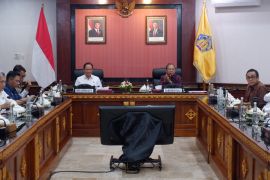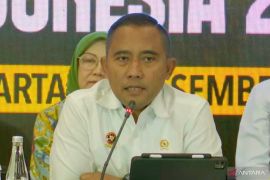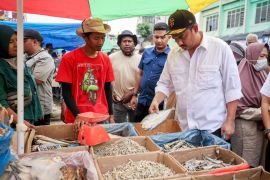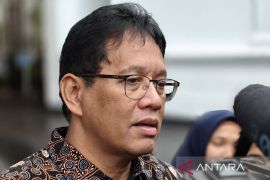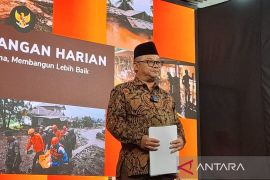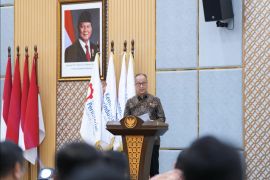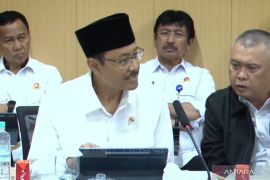San Fransisco, (Antara) - Indonesian President Joko Widodo (Jokowi) met the Indonesian diaspora and community in San Francisco, the United States, at 6:45 p.m. local time on Tuesday or at 9:45 a.m. Western Indonesia Time (WIB) on Wednesday.
Indonesian Consul General in San Francisco Ardi Hermawan noted on the occasion that some 800 members of the Indonesian diaspora and community had attended the meeting with Jokowi.
"There are 800 people attending the meeting tonight comprising professionals, workers, researchers, and students who are pursuing studies at universities in San Francisco," Ardi noted.
Moreover, there are also Indonesians who come from religious, social, and regional communities as well as workers who are grouped under the Javanese, Sundanese, Balinese and contemporary Balinese artist communities.
"Many Indonesian citizens are working in Silicon Valley, which showcases the recognition of Indonesians (skill)," Ardi pointed out.
During the meeting, President Jokowi stated that since assuming office, he had visited the United States twice.
"I have visited the United States, which is very far away (from Indonesia) twice," Jokowi said at the start of his speech.
On the occasion, the president said he was keen to provide explanations on several matters and challenges being faced in Indonesia.
Jokowi remarked that there was a crisis in Greece in 2014. When Indonesia prepared anticipatory steps, another crisis emerged with the depreciation of the Chinese Yuan. As anticipatory measures were being undertaken, the interest rates began strengthening as a result of the policy adopted by the Fed, which was then followed by a drop in the oil prices.
"This is the world," stressed Jokowi.
As a result of the global recession, several countries, such as Brazil and Russia experienced a negative growth of minus three and minus five percent respectively, and so did others, Jokowi stated.
However, Indonesia was able to implement anticipatory steps as a result of which its growth in the first quarter of last year was recorded at five percent and dropped to 4.68 percent in the second quarter, though in the third and fourth quarters, the growth rebounded again to 4.7 percent and 5.04 percent respectively.
The president also elaborated on matters related to competition, including in the ASEAN Economic Community (AEC), which has come into effect since January.
"We have entered the AEC era, which could no longer be avoided. Ahead, we also face the TPP (Trans Pacific Partnership) and the RCEP (regional comprehensive economic partnership) of the Chinese Bloc. There is also the European Union FTA. These all are in the era of openness," he noted.
Therefore, in a bid to increase Indonesia's competitive edge, the government has launched 10 economic policy packages.
On the occasion, the president also spoke at length about several investment projects being carried out by the government in various parts of the country.(*)


